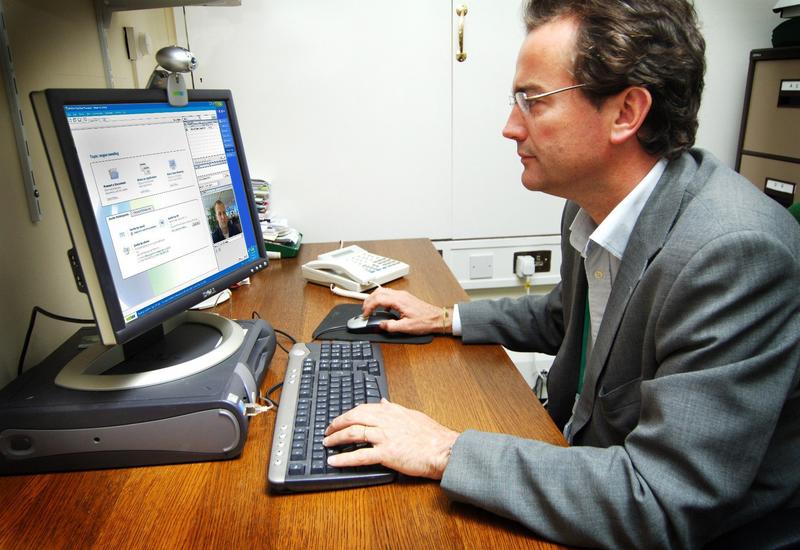MPs more efficient with web conferencing
Trial shows MPs could save time, money and a thousand tons of carbon emissions if they used web conferencing tools more often.


Using web conferencing technology could save parliament money, time and tons of carbon emissions, a trial has suggested.
Two MPs - Dave Williams, a Liberal Democrat from Ceredigion, and Nick Hurd, a Conservative from West Ruislip - trialled WebEx's online video conferencing tools for three weeks this summer. Both saved time on travel by cutting down on face-to-face meetings, creating environmental and economic efficiencies.
Because the tool is based in a web browser, it requires no additional training or software downloads - handy as it keeps things simple for constituents on the other end, WebEx said.
Despite such benefits, web conferencing will never replace meetings, said WebEx's UK country manager Natalie Butler. "WebEx is not going to replace face-to-face, it's just a better alternative to strings of email or phone calls... it's there as a complement to face-to-face meetings," Butler said.
But if every MP used such a technology to cut-back on travel to meetings, it could save a thousand tons of carbon as well as money spent on travel expenses, the trial suggested.
Williams said that travelling from parliament at Westminster to his home constituency in west Wales takes 10 hours on the train, making mid-week meetings with constituents difficult.
"Having a constituency in west Wales and an office in Westminster means I spend a lot of time travelling back and forth," said Williams. "It is important that I have face-to-face time with both my constituents and staff but I was very aware of not only the time and money it was costing, but also the environmental impact."
Get the ITPro daily newsletter
Sign up today and you will receive a free copy of our Future Focus 2025 report - the leading guidance on AI, cybersecurity and other IT challenges as per 700+ senior executives
During a 20-day trial, he used WebEx's conference tool to hold seven meetings. Holding those meetings in person would have required travelling 6457 kilometres - taking some six days and creating about 160 kilogrammes of carbon dioxide. Williams believes he could save some three tons of carbon emissions by using web conferencing for meetings that don't require him in person, but would be too complicated over the phone or by email.
"Some face to face meetings just weren't necessary so I looked at how technology could help me to have productive meetings in an online environment," he said. "Despite some saying that this type of technology decreases face-to-face contact, I've found it actually promotes it...Before I would have communicated by telephone or email a lot more but now I can directly talk to people and see them via a web cam. That makes for a much more productive dialogue."
While being based in London means Hurd has fewer travel difficulties than Williams, he still felt that many of his face-to-face meetings were not necessary.
"An ongoing concern for MPs is making the most efficient use of their time and the ability to be flexible is key to this," said Hurd. "Alongside that there is the challenge of keeping the cost of travel low and now we are starting to understand the effect it has on the environment as well... The technology is now available to help reduce our dependence on travel - so we can all do something about climate change."
Hurd used the tool for ten meetings over one month, which he said saved 23.5 hours in travel time for himself and the other attendees. "If I can save this amount of time as one of the closest MPs to Westminster, then the potential to reduce travel and carbon emissions for those with constituencies that are further away is enormous," he said.
Butler said even WebEx was surprised at the time savings. "In west Wales, it was no surprise to see savings, but that Nick [Hurd], living in greater London in West Ruislip saved 24 hours was," said Butler.
Hurd said the technology was also useful for meetings previously done over the phone, as it allows document sharing, which has made policy reports easier, as it lets multiple people look at the same document while sharing feedback.
"Instead of having to resort to long email chains or tracked changes in the document, adjustments could be made in real-time with the people involved," he said.
"Before I only had the option of meeting face-to-face or having a telephone call. WebEx offers a way to avoid the extra time that face-to-face meetings often involve, whilst providing a level of communication that allows for a very productive meeting without generating carbon emissions."
Freelance journalist Nicole Kobie first started writing for ITPro in 2007, with bylines in New Scientist, Wired, PC Pro and many more.
Nicole the author of a book about the history of technology, The Long History of the Future.
-
 Meta just revived plans to train AI models using European user data
Meta just revived plans to train AI models using European user dataNews Meta has confirmed plans to train AI models using European users’ public content and conversations with its Meta AI chatbot.
By Nicole Kobie
-
 AI is helping bad bots take over the internet
AI is helping bad bots take over the internetNews Automated bot traffic has surpassed human activity for the first time in a decade, according to Imperva
By Bobby Hellard